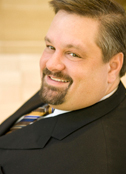© 2015 The Texas Lawbook.
By Jeff Bounds
(Oct. 9) – The opening of a Dallas office of the U.S. Patent and Trademark Office will mean more work for the North Texas intellectual property bar, which should also benefit when local patent examiners are ready to move into the private sector, IP law experts say.
The USPTO held a grand opening of its new Dallas digs Monday, the fourth satellite office the Alexandria, Va.-based agency has opened since 2012 under patent reform legislation that President Barack Obama signed into law the previous year.
“You won’t have to fly across the country to do business with our nation’s innovation agency,” Michelle K. Lee, director of the USPTO, said at a press conference at Dallas’ Old Red Museum, near the new office’s location in the Terminal Annex Federal Building.
“The new examiners hired here will further reduce the rapidly declining backlog of unexamined patent applications, so that your new ideas and technologies can reach the marketplace more quickly, creating jobs and keeping our country on the forefront of innovation,” Lee said.
North Texas patent attorneys believe the new USPTO location should enable them to siphon business that currently goes to their brethren in the Washington, D.C. area.

“Over time, legal work will migrate from (Washington) to take advantage of lower costs in Dallas-Fort Worth,” said Dan Venglarik, a partner at Munck Wilson Mandala in Dallas. “All area patent firms – and even those in Austin and Houston – hope to benefit from that shift.”
In addition, Texas firms are hoping to eventually employ some of the 100-odd people who will staff the USPTO office in Dallas. A large number of those agency employees will be patent examiners (who review patent applications to ensure they comply with basic rules and legal requirements) and administrative law judges, who rule on issues such as whether existing patents are valid.
“Those people will get very good training at the USPTO,” said Chad Ennis, Austin-based counsel at Bracewell & Giuliani. “Then, hopefully, when they leave government service, they will stay in Texas.”
In the past, Ennis noted, patent examiners would live and work in the Washington, D.C. area. Upon leaving the USPTO, they would typically move to law firms and industries there.

“Having these subject matter experts locally will help Dallas and the region strengthen its patent practice, and should keep it as a hub for patent prosecution,” he said.
The patent office will also benefit from hiring patent examiners from beyond the Washington area, intellectual property lawyers say.
Because patent examiners need training in scientific and engineering fields, the USPTO previously limited its access to talent by hiring only in Alexandria. That meant, say, that Texas-trained experts in energy fields might not be as plentiful.
“The PTO presence (in Dallas) will provide a pipeline of engineering talent to join the agency as examiners, thereby improving the quality and efficiency of the patent office,” said David McCombs, a Dallas-based partner and firm-wide chair of the technology practice at Haynes and Boone.
In turn, the unique collection of people that the USPTO employs in Dallas could motivate businesses to take care of more of their patent work here, lawyers say.

“Companies should be motivated to source their IP operations here,” said Kelley Conaty, an intellectual property lawyer and partner at Sidley Austin in Dallas. “The North Texas location “will further enhance the Dallas-Fort Worth talent pool with individuals with unique patent office experience,” she said.
© 2014 The Texas Lawbook. Content of The Texas Lawbook is controlled and protected by specific licensing agreements with our subscribers and under federal copyright laws. Any distribution of this content without the consent of The Texas Lawbook is prohibited.
If you see any inaccuracy in any article in The Texas Lawbook, please contact us. Our goal is content that is 100% true and accurate. Thank you.
